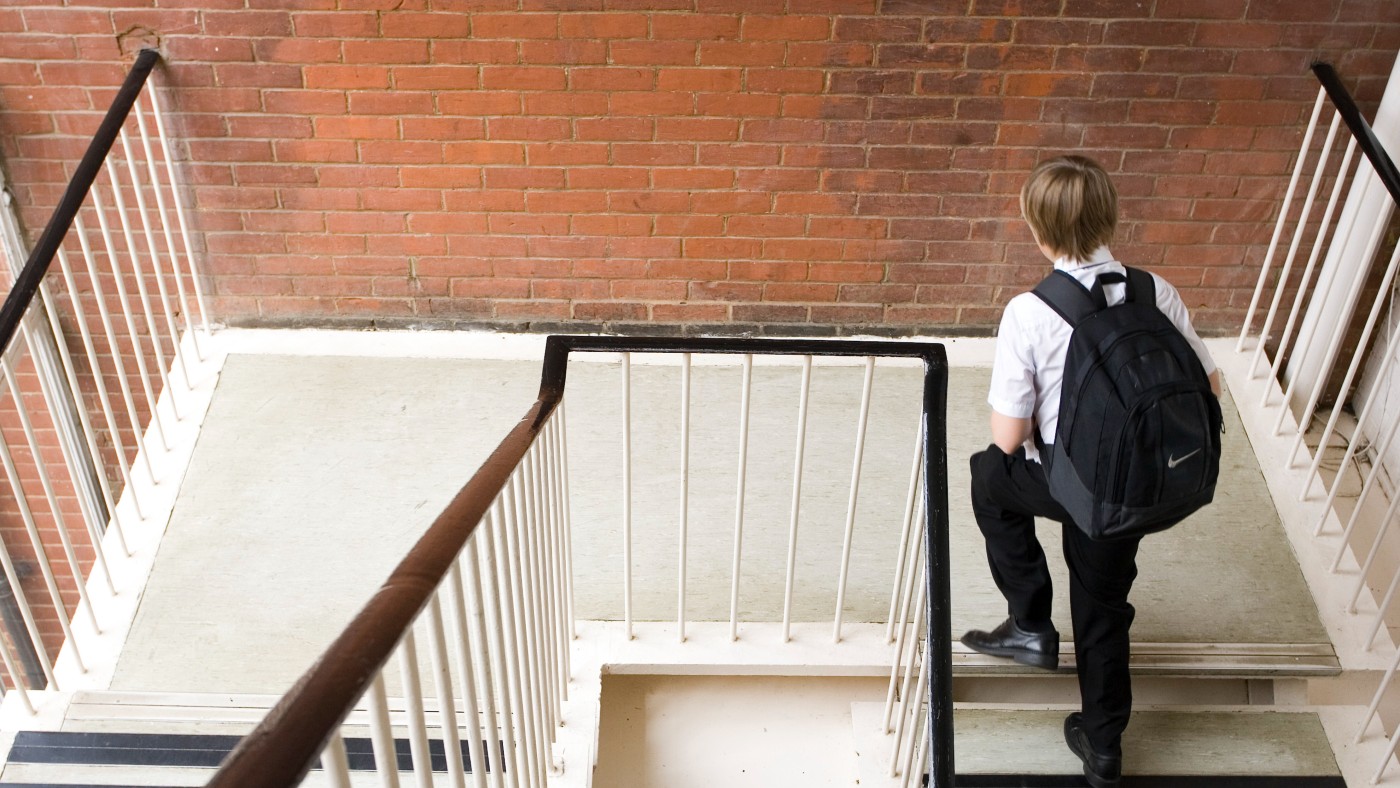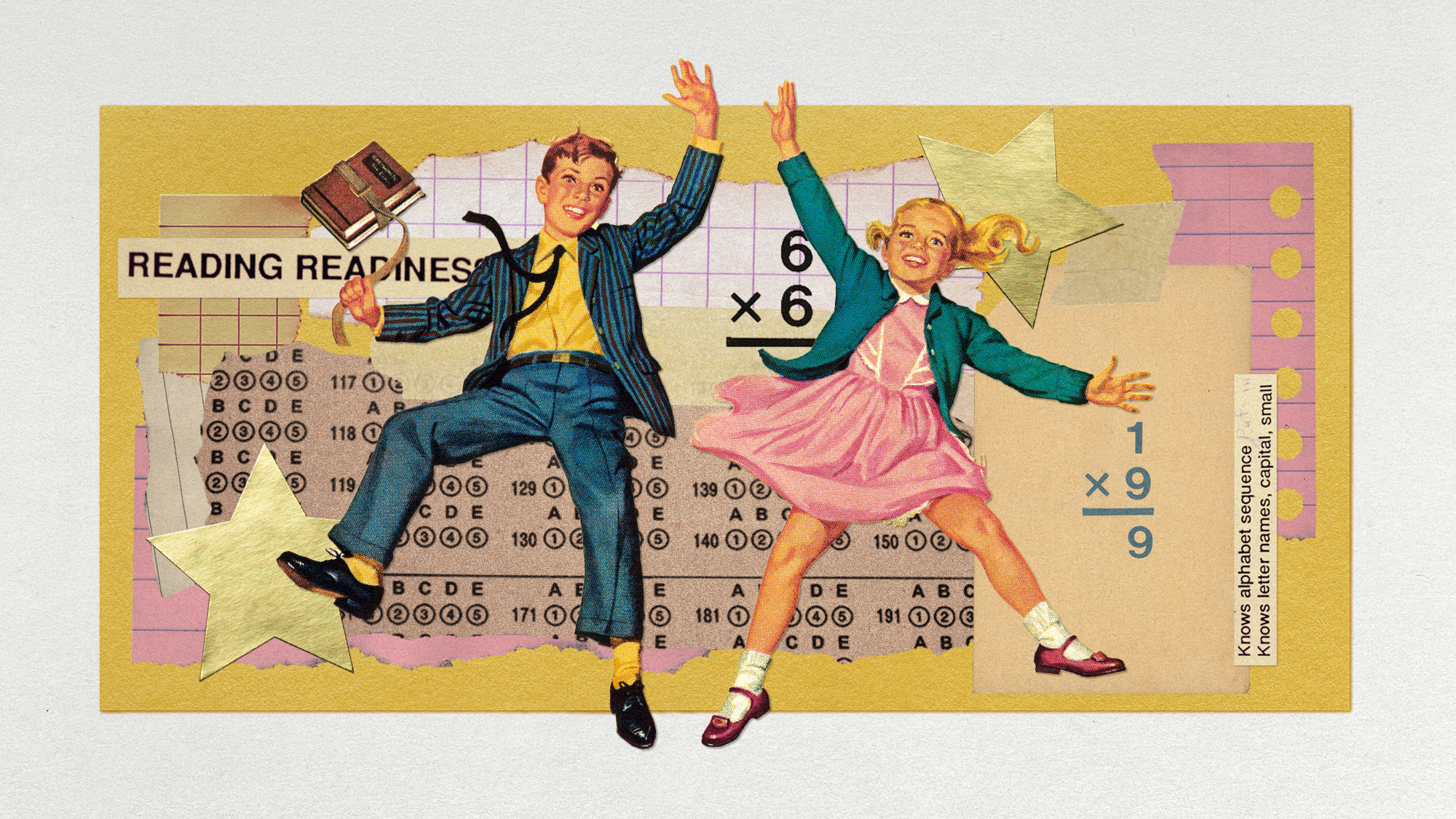When should children start secondary school?
When making a decision, parents are likely to reflect on their own experiences of education

A free daily email with the biggest news stories of the day – and the best features from TheWeek.com
You are now subscribed
Your newsletter sign-up was successful
Is it best to move to senior school at 11 or 13? Experts, Rosie McColl and James Johnson, discuss the respective benefits of each in an article first published in The Week’s Independent Schools Guide.
The case for 11+
Let’s get one thing straight. The most important factor when choosing a school for a child is whether the environment is right for them personally and whether it feels like a good fit. Only then should concerns about the age of entry point arise. And even then, it will depend on the individual child. Where one might be raring to go with a new chapter of their school life, another may not be ready.
Levels of maturity are an important factor when transitioning to senior school and this partly explains why boys’ prep schools traditionally go up to year 8, while the transition point for girls is the end of year 6. As the head of an all-through girls’ school (from four to 18) with a key entry point at 11+, I do see a certain readiness to progress at this age in our new starters.
The Week
Escape your echo chamber. Get the facts behind the news, plus analysis from multiple perspectives.

Sign up for The Week's Free Newsletters
From our morning news briefing to a weekly Good News Newsletter, get the best of The Week delivered directly to your inbox.
From our morning news briefing to a weekly Good News Newsletter, get the best of The Week delivered directly to your inbox.
Anyone with a daughter will know, or will soon find out, that some aspects of school life can become more tricky for girls around year 5 and year 6. The word “tween” has entered the parental lexicon for a reason: whether it’s hitting puberty, a sense of out-growing surroundings or a need to spread one’s wings, this can be a time of turbulence.
Being a big fish in a small pond is not all it’s cracked up to be. This is the age where friendships start to change and frustrations set in. By year 6, whether they have acknowledged this verbally or not, many children will want to explore new friendships. The prospect of a fresh start in year 7, with transition events and induction days to look forward to, can be just what is needed to keep year 6 frustrations in check. When I speak to parents after school transition events, they tell me their child is “nervous but excited” about what is to come. This opportunity to step up, explore new interests and meet new people comes just at the right time for many.
Arriving in year 7 also allows pupils the luxury of time. Time to focus on settling in, forming wide friendship groups and understanding how relationship dynamics change over the months and years – and all way before they get to the seriousness of the GCSE years. A lot of growing up and confidence building occurs in these years.
Educationally, there is a lot to be said for an 11+ entry point. A far broader curriculum in years 7 and 8 means there are opportunities for pupils to explore new subjects before committing to GCSE options. This is the time when creative subjects – the ones that can really boost confidence – really shine. Children fall in love with new disciplines, be it coding or cooking, screen printing or drumming, Latin or lacrosse. At Brighton Girls, drama, dance, design and innovation, computer science, food and nutrition, music and art all appear throughout key stage 3. Years 7 and 8 are also an important time for learning about learning. There is time to develop study skills and revision techniques through low-stakes testing and the self- knowledge that is gained becomes invaluable as pupils progress up the school.
A free daily email with the biggest news stories of the day – and the best features from TheWeek.com
Having an 11+ entry is good for everyone. While younger pupils benefit from our mentoring system that sees older pupils acting as counsellors as problems and issues inevitably arise, I also think the energy and enthusiasm that 11 and 12-year-olds inject into a school bring joy to older pupils. You end up with a happy, balanced environment where GCSE and A level angst and teenage issues are counterweighted by year 7s and 8s playing, running to lunch and exuding that carefree attitude that is still unfettered by teenage cares.
Schools with an 11+ entry point always offer a thriving extra-curricular scene too, especially as year 7s and 8s still have that wonderful enthusiasm for trying new things. Speak to any year 7 parents and they will tell you that their children want to experience all the clubs. Harnessing this enthusiasm is something that all schools do well at 11+. By year 9, a combination of natural cynicism and emerging passions for particular activities mean that students are more reticent about trying everything on offer.
Capturing that year 7 keenness can have a huge impact. Everything is new and exciting. Many will try a sport or join an activity that they have never tried before. Pupils at Brighton Girls are queuing round the block for sea swimming, e-sports, skateboarding, politics, Spikeball, culture club and pizza and philosophy club. And when I see the quiet concentration of a 12-year-old as she shoots off the half-pipe or hear the peels of laughter as another plunges into the English Channel, I feel there’s something rather special about being able to offer such opportunities to these joyful tweens.
Rosie McColl, Head, Brighton Girls GDST
In praise of 13+
Education should be about what is right for the individual child. Some will thrive with the move to senior education aged 11. Others may find the transition better at a later stage. For parents, having this choice at all is one of the many positives of the independent sector.
I have been lucky enough to work in four excellent independent schools, Cheltenham College, Tonbridge School, Ardingly College and now Taunton School, enjoying them all in equal measure. All but Tonbridge have an attached prep school on a single campus. At Tonbridge, Cheltenham and Taunton, 13+ is considered the start of senior education. At Ardingly I was part of a senior leadership team that oversaw the structural change from the prep finishing at year 8 to the prep finishing at year 6, shortly before a move to Taunton and a return to the 13+ structure. Why the potted history of my career? Simply to demonstrate that I am comfortable with both the 13+ and 11+ model – and believe that both work.
At Taunton School, each September more than 70 pupils move up from year 8 in our prep to the senior school. They are joined by another 25 to 30 pupils from a variety of other schools (prep schools, state schools and international schools). It’s intriguing that parents of pupils from such a variety of educational settings are happy to endorse year 9 as the senior school entry point. We work hard on the successful integration of both current and new pupils. This starts with the considered allocation of houses, ensuring an even split of skills and interests and encouraging the formation of new friendships for those pupils transitioning from the prep. They have the best of both worlds: a secure group of friends already established and the exciting arrival of a new group of pupils who bring a different dimension to their year. No doubt such integration features in 11+ schools too.
So what are the advantages of the 13+ model? Firstly, there is no rush to grow up fast. Many parents, reflecting on their own education, feel that childhood is now all too brief. There is increasing social pressure for pre-teens and early teens to adopt adult personas well in advance of their emotional and physical maturity. Some might say the preciousness of childhood should be preserved rather than the precocious inadvertently encouraged. The 13+ model does not infantilise pupils in any detrimental way but rather allows children to be just that for a moment longer.
Secondly, there is a huge difference between an 11-year-old and an 18-year-old ready to sit final public exams, applying to university or about to start work, driving a car, able to vote. Many 11+ schools manage this seven-year spread of ages extremely successfully by creating a “lower school” provision for their year 7 and 8 cohort, but there is a reason why this separate experience is deemed necessary: often these youngsters don’t quite fit with the near adults wandering around the campus.
Thirdly, done well, the final two years of prep can be a precursor to the sixth form experience. Pupils have leadership opportunities and positions of responsibility that are hard to replicate in an 11+ environment where they must look up for their role models rather than being the role models themselves. Are positions of responsibility afforded to those in year 8 as part of a senior school environment really as relevant when they have only year 7 below them?
Finally, whilst some pupils will take high stakes 11+ academic assessment for senior schools entirely in their stride, for others it will be very damaging to confidence to be told, aged 11, that you have already failed on an educational journey that has so many more years to unfold. Looking back at my own academic development, I am extremely grateful that no one was telling me during year 6 whether I had passed or failed. I think I was too busy enjoying all the elements of education and childhood that should be the focus at that time.
As a parting observation, and you’ve heard it many times before, whether you opt for 13+ or 11+, the most important thing of all is to choose the school that is going to make your child happy.
James Johnson, Headmaster, Taunton School
-
 How the FCC’s ‘equal time’ rule works
How the FCC’s ‘equal time’ rule worksIn the Spotlight The law is at the heart of the Colbert-CBS conflict
-
 What is the endgame in the DHS shutdown?
What is the endgame in the DHS shutdown?Today’s Big Question Democrats want to rein in ICE’s immigration crackdown
-
 ‘Poor time management isn’t just an inconvenience’
‘Poor time management isn’t just an inconvenience’Instant Opinion Opinion, comment and editorials of the day
-
 The pros and cons of banning cellphones in classrooms
The pros and cons of banning cellphones in classroomsPros and cons The devices could be major distractions
-
 School phone bans: Why they're spreading
School phone bans: Why they're spreadingFeature 17 states are imposing all-day phone bans in schools
-
 Schools: The return of a dreaded fitness test
Schools: The return of a dreaded fitness testFeature Donald Trump is bringing the Presidential Fitness Test back to classrooms nationwide
-
 Send reforms: government's battle over special educational needs
Send reforms: government's battle over special educational needsThe Explainer Current system in 'crisis' but parents fear overhaul will leave many young people behind
-
 Education: Can public schools be religious?
Education: Can public schools be religious?Feature A Supreme Court seems ready to rule in favor of religious charter schools in Oklahoma, which could reshape public education
-
 America's academic brain drain has begun
America's academic brain drain has begunIN THE SPOTLIGHT As the Trump administration targets universities and teachers, educators are eying greener academic pastures elsewhere — and other nations are starting to take notice
-
 Schools' Send crisis: how can it be fixed?
Schools' Send crisis: how can it be fixed?Today's Big Question Government urged to reform support for children with special educational needs and disabilities and save councils from bankruptcy
-
 Unschooling: the radical education trend raising eyebrows
Unschooling: the radical education trend raising eyebrowsUnder the radar Some parents are letting their children lead their education